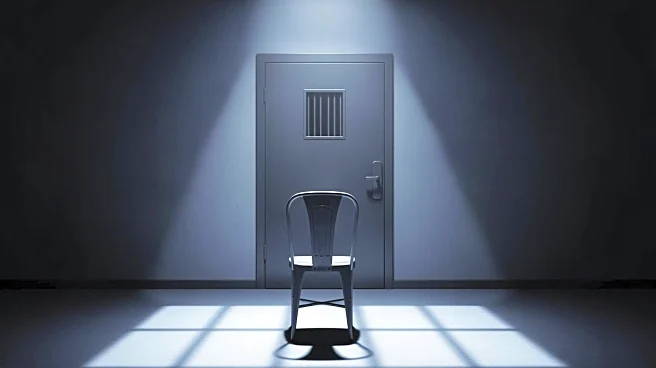What's Happening?
The U.S. Senate has rejected a short-term funding bill passed by the House, raising the risk of a government shutdown. The bill aimed to keep the government funded until November 21 but failed to secure the necessary 60 votes in the Senate, with a vote of 44 in favor and 48 opposed. The rejection comes as lawmakers prepare to leave Washington for a week, with funding set to expire on October 1. The House bill had passed with a narrow margin of 217 to 212, with bipartisan opposition. Senate Democrats opposed the bill due to Republican reluctance to negotiate on Democratic priorities, particularly healthcare. President Trump has indicated that a shutdown could occur, stating that essential services like the military and Social Security would be maintained.
Why It's Important?
The failure to pass the funding bill in the Senate highlights the ongoing partisan divide in U.S. politics, particularly regarding budgetary and healthcare issues. A government shutdown could have significant impacts on federal operations, affecting services and employees across the country. The impasse underscores the challenges in reaching bipartisan agreements, with Democrats and Republicans at odds over key provisions. The potential shutdown could disrupt economic stability and public services, placing pressure on lawmakers to find a resolution. The situation also reflects broader political dynamics, with each party seeking to leverage the situation to their advantage.
What's Next?
With the Senate set to reconvene at the end of the month, further negotiations are expected to attempt to resolve the funding dispute. Senate Majority Leader John Thune has indicated another vote on the Republican measure will occur once the Senate returns. Democrats have urged Republicans to negotiate, but GOP leaders have shown reluctance. The House has extended its recess past the October 1 deadline, signaling potential readiness to return if a shutdown occurs. The outcome of these negotiations will be crucial in determining whether a shutdown can be avoided and how the government will proceed with funding.
Beyond the Headlines
The funding dispute raises questions about the effectiveness of current legislative processes and the ability of Congress to address critical issues in a timely manner. The partisan nature of the debate reflects deeper ideological divides that could influence future legislative efforts. The situation also highlights the role of political leadership in navigating complex negotiations and the potential consequences of failing to reach consensus. Long-term implications may include shifts in public trust in government and the prioritization of issues like healthcare in future policy discussions.









